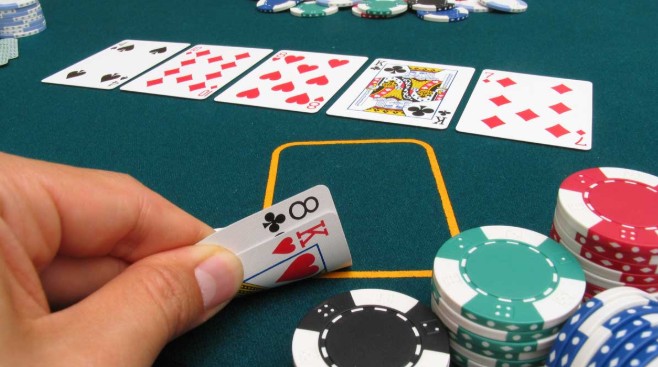
In the vast universe of online casino games, few command the same level of respect, intellectual rigor, and timeless appeal as poker. It is not merely a game of chance; it is a battle of wits, a delicate dance of psychology, mathematics, and steel-nerved discipline. For discerning players who seek a challenge that rewards skill over simple luck, the poker tables at 79king represent a premier digital arena.
This comprehensive guide is designed for both aspiring novices and seasoned sharks looking to refine their edge. We will delve into the fundamental rules of the most popular poker variant, Texas Hold’em, explore foundational and advanced strategies, and highlight why 79king provides the ultimate platform for your poker journey. Prepare to move beyond simply playing the cards in your hand and start playing the player across the table.
Contents
The Enduring Allure of Poker – A Game of Skill

Unlike slot machines or roulette, where the outcome is governed by random chance, poker empowers the player. A skilled player can win with a weak hand through a perfectly timed bluff, or extract maximum value from a strong hand through clever betting. This dynamic is what makes the game so endlessly fascinating.
- Psychological Warfare: Can you read your opponent’s betting patterns? Do they bet big only when they have a monster hand, or are they capable of bluffing? Can you project an image of strength when you are weak, and an image of weakness when you are strong? This mental game is the heart of poker.
- Mathematical Precision: Poker is a game of incomplete information, but it is deeply rooted in mathematics. Calculating pot odds, understanding probabilities, and counting your “outs” (cards that will improve your hand) are critical skills that separate amateurs from professionals.
- Strategic Discipline: The best players are not the ones who play the most hands, but the ones who know which hands to play and, more importantly, which hands to fold. Bankroll management and the emotional control to avoid “going on tilt” after a bad beat are non-negotiable for long-term success.
At 79king, you’ll find a vibrant community and a range of tables that provide the perfect environment to test and hone these skills.
Getting Started – Understanding Texas Hold’em at 79king
While there are many poker variants, Texas Hold’em is the undisputed king and the primary format you’ll find at 79king. The goal is simple: make the best possible five-card poker hand using any combination of your two private “hole cards” and the five shared “community cards.”
Here’s a breakdown of a single hand:
- The Blinds: Before any cards are dealt, two players post forced bets to create an initial pot. The player to the left of the dealer button posts the “small blind,” and the next player posts the “big blind.”
- The Pre-Flop: Every player is dealt two cards face down (hole cards). The first round of betting begins with the player to the left of the big blind. Players can choose to Call (match the big blind), Raise (increase the bet), or Fold (discard their hand).
- The Flop: After the first betting round, three community cards are dealt face up in the middle of the table. A second round of betting occurs, starting with the first active player to the left of the dealer button.
- The Turn: A fourth community card is dealt face up. This is followed by a third round of betting. The stakes often double at this stage in limit games.
- The River: The fifth and final community card is dealt. The final round of betting takes place.
- The Showdown: If two or more players remain after the final betting round, they reveal their hole cards. The player who can make the best five-card hand using their two hole cards and the five community cards wins the pot.
The 79king interface is designed to be intuitive, clearly displaying the pot size, your turn to act, and the betting options available, making it easy for new players to follow the action.
Foundational Strategies for Building Your Bankroll

Winning at poker requires a solid strategic foundation. Rushing in without a plan is the fastest way to lose your money.
- Be Selective with Your Starting Hands (Position is Power):
This is the most critical lesson for a beginner. You should not play every hand you are dealt. The strength of your starting hand is highly dependent on your position at the table.
- Early Position (The first players to act): You have the least information, as most of the table will act after you. You should play extremely tight here, only entering the pot with premium hands (e.g., AA, KK, QQ, AK).
- Middle Position: You can loosen up slightly, adding strong hands like JJ, TT, AQ to your range.
- Late Position (The last players to act, including the “button”): This is the most powerful position. You have seen how everyone else has acted, giving you a wealth of information. From here, you can play a wider range of hands, including speculative hands like suited connectors (e.g., 8-9 of hearts) or small pairs, often for a cheap price.
- Master the Art of Betting: Value vs. Bluffs
There are fundamentally two reasons to bet in poker:
- Value Betting: You bet because you believe you have the best hand and you want players with weaker hands to call you. This is how you make your money. The key is to size your bet correctly—large enough to extract value, but not so large that you scare away all weaker hands.
- Bluffing: You bet because you believe you have the worst hand, but you want to force players with better hands to fold. A bluff is a story you tell with your chips. A common and effective type is the Continuation Bet (C-Bet), where you bet on the flop after having been the pre-flop raiser, regardless of whether you hit your hand. This projects strength and often wins the pot right there. Beginners should focus primarily on value betting and use bluffs sparingly until they are more comfortable reading situations.
- Think in Terms of Pot Odds:
This may sound complex, but the basic concept is simple. Pot odds are the ratio of the money currently in the pot to the amount of money you must call to continue playing. For example, if there is $90 in the pot and your opponent bets $10, the pot is now $100 and it costs you $10 to call. Your pot odds are 100-to-10, or 10-to-1. You should only make this call if you believe your chances of making a winning hand are better than 10-to-1. This simple calculation prevents you from making unprofitable calls and chasing draws when the price isn’t right.
Advanced Concepts and Psychological Discipline

Once you’ve mastered the basics, you can add more sophisticated layers to your game.
- Reading Your Opponents Online:
You can’t see your opponents’ faces at king79, but their actions speak volumes. Pay attention to:
- Betting Patterns: Does a player only raise pre-flop with premium hands? Do they limp into pots with a wide range of hands? This helps you profile them.
- Timing Tells: A player who bets instantly often has an easy decision (either a monster hand or a total bluff). A player who takes a long time to think might have a marginal hand or be considering a bluff.
- Player Types: Try to categorize your opponents. Are they a “Tight-Aggressive” (TAG) player who plays few hands but plays them aggressively? A “Loose-Passive” (Fish) who plays too many hands and calls too often? Adjusting your strategy to exploit the tendencies of each player type is the hallmark of an advanced player.
- Ironclad Bankroll Management:
This is the single most important skill for long-term survival and success.
- The 5% Rule: A common guideline is to never bring more than 5% of your total poker bankroll to a single cash game table. This means if you have a $200 bankroll, you should play at tables with a maximum buy-in of $10.
- Know When to Move Stakes: If your bankroll grows, you can move up to higher stakes. If you suffer losses, have the discipline to move down in stakes to protect your remaining funds.
- Avoid Tilt: “Tilt” is a state of mental or emotional frustration in which a player adopts a sub-optimal strategy, resulting in over-aggressive and irrational play. After a tough loss (a “bad beat”), the worst thing you can do is try to win it all back immediately. Have the discipline to take a break, clear your head, and return when you are calm.
Why 79king is Your Ultimate Poker Room
Playing poker at 79king offers a distinct advantage over other platforms:
- High Player Traffic: A thriving poker room needs a constant flow of players to ensure that games are running 24/7 at all stake levels. 79king delivers this, meaning you’ll always find a table.
- Variety of Stakes: Whether you’re a beginner wanting to play for pennies or a high-roller looking for a serious challenge, 79king offers a range of tables to suit every bankroll.
- Security and Fair Play: 79king employs state-of-the-art security to protect your funds and personal information. Their games are powered by certified Random Number Generators (RNGs), ensuring a fair and unpredictable shuffle every time.
- Promotions and Bonuses: 79king often provides valuable promotions, such as welcome bonuses, reload bonuses, and rakeback deals, which add direct value to your bankroll and reward your loyalty.
Conclusion: Take Your Seat at the Table
Poker at 79king is more than a card game—it’s an intellectual sport. It’s a journey of continuous learning, self-control, and strategic adaptation. By understanding the core mechanics, applying sound foundational strategies, and maintaining unwavering discipline, you can transform yourself from a casual participant into a dominant force at the tables.